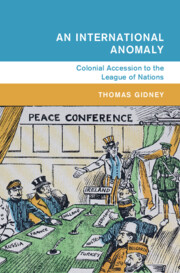Acknowledgements
This project came out of an endeavour to combine my interest in British imperial history, India’s struggle for decolonisation, as well as Geneva’s international legacy within one book. The idea to amalgamate these interests occurred during a semester abroad at Jawaharlal Nehru University in Delhi, and after returning to Geneva to complete my master’s degree. However, what started as a master’s dissertation on India’s accession to the League of Nations stirred many more ideas, opening new windows to other histories that could only be later investigated in this book.
Pursuing these thoughts over the last few years has brought me to numerous cities, and to archives where the historical actors within this book once walked, negotiated, argued, and deliberated with one another. My frequent trips to archives in Geneva, Paris, London, Delhi, and Dublin were made possible with the funding of the Swiss National Science Foundation (SNF), to whom I am very grateful for having supported this project.
Moreover, this book has greatly benefitted from the contributions and backing of my colleagues, friends, and family. I would like to thank the following for their invaluable support: Professor Carolyn Biltoft for her supervision, encouragement, and constant creativity; my second reader, Professor Cyrus Schayegh, for his guidance around much of the important literature around the topic, as well as his incisive and constructive comments throughout the book; Professor Gopalan Balachandran, who supervised my master’s thesis, and pointed me in the right direction in terms of academic literature; Professor Michael Kennedy, for inviting me to a talk at the Royal Irish Academy in Dublin and for his groundbreaking work on Ireland’s membership of the League; Professor Stephen Legg for his valuable inputs during my thesis defence; Professor Erez Manela for accepting this book as part of the Cambridge Core series on Global and International History; Professor Glenda Sluga for her recommendation and backing of this project; as well as Professor Isabelle Milbert and Dr Dominic Eggel for their support in obtaining the generous funding by the SNF. My thanks also go to Dr Damian Clavel and Nathalie Monnet for guiding me through the rigorous process of applying for the grant. I am also grateful to Lucy Rhymer and Rosa Martin from Cambridge University Press for leading me through the process of publication, as well as to the peer reviewers for their useful comments and contributions.
At the Graduate Institute, I would like to thank the input from some of my colleagues and friends in the PhD programme. These include Anca Cretu for guiding me in the initial tender months of this project. In Geneva, I would like to thank my friends and colleagues especially Andre Sarli, Maria Kamran, Amal Shahid, Anshul Verma, Joshua Thew, Joel Veldkamp, Michele Sollai, Paroma Ghose, Mona Bieling, Emmanuel Dalle Mulle, Andrei Mamolea, and Alessandro Ambrosino for being there throughout the years of the project.
During my research trips, I was hosted by many different people who became a part of my PhD experience. I would like to thank Andy, Assel, and Zazhlan for their hospitality as I stayed with them for two fantastic months in London, and Sean Cooper, with whom I stayed in Dublin. In Delhi, I would like to thank the whole Idikulay family, who were happy to host me again, having been part of my positive experience of India, during my master’s. In the many archives I visited, I met great archivists and staff who assisted me along the way in retrieving some of the more difficult-to-find files in this book.
Finally, I would like to thank my parents who spent long evenings reading through the final version of this manuscript, as well as my sister Florence. And finally, thank you to my wife, Aditi, who has had to listen to all the updates and changes as this thesis evolved into a book (with I hope, genuine interest) throughout the years, as well as my twin daughters, Keya and Evie, who were born as a loving distraction just before the manuscript’s final submission.
Published with the support of the Swiss National Science Foundation.

